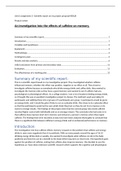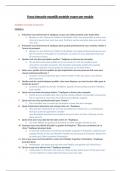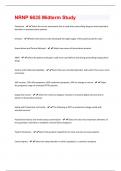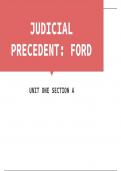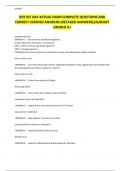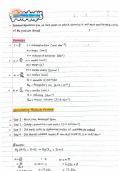economics in disguise?
Abstract: The abstract introduces the concept of "as-if" behavioral economics, which
suggests that individuals often make decisions that mimic rational behavior, even when
their actual cognitive processes may differ from the assumptions of neoclassical
economics. This paper critically examines the extent to which behavioral economics is a
departure from or merely a disguise of neoclassical economics.
Section 1 - Introduction: This section outlines the central question of the paper, which is
whether behavioral economics represents a fundamental departure from neoclassical
economics or if it merely modifies the assumptions while preserving the neoclassical
framework.
Section 2.1 - As-if Behavioral Economics:
Prospect Theory: This theory suggests that people don't always make decisions based on
expected outcomes as neoclassical economics assumes. Instead, they often evaluate
potential gains and losses differently, showing risk aversion for gains and risk-seeking
behavior for losses.
Expected Utility Theory: Expected utility theory is a foundation of neoclassical economics,
stating that individuals make rational choices by comparing the expected utility (happiness
or satisfaction) of different options and choosing the one with the highest expected utility.
It assumes consistent risk aversion.
In this context, the authors discuss how these theories can coexist within "as-if" behavioral
economics. They explain how real-world decisions often align with prospect theory's
insights into gain and loss framing, yet can still be interpreted as if individuals are making
decisions based on expected utility theory, preserving the neoclassical framework. The
concept of "as-if" behavioral economics, incorporates behavioral insights without
necessarily altering the core neoclassical assumptions. They argue that individuals may
behave in ways consistent with neoclassical rationality, even if they do not possess the full
cognitive abilities assumed by neoclassical economics.
Section 3.1 & 3.2 - Modeling the "As-If" Approach:
Cognitive Simplicity: The authors emphasize the importance of creating models that
consider human cognitive limitations. Instead of assuming perfect rationality, they
incorporate the idea that people have bounded rationality, meaning their decision-making
abilities are limited.
Heuristic-Based Decision-Making: Here, they likely discuss the use of heuristics, which are
mental shortcuts people use to make decisions quickly. These heuristics can lead to
systematic biases, but they also help individuals navigate complex choices efficiently.

